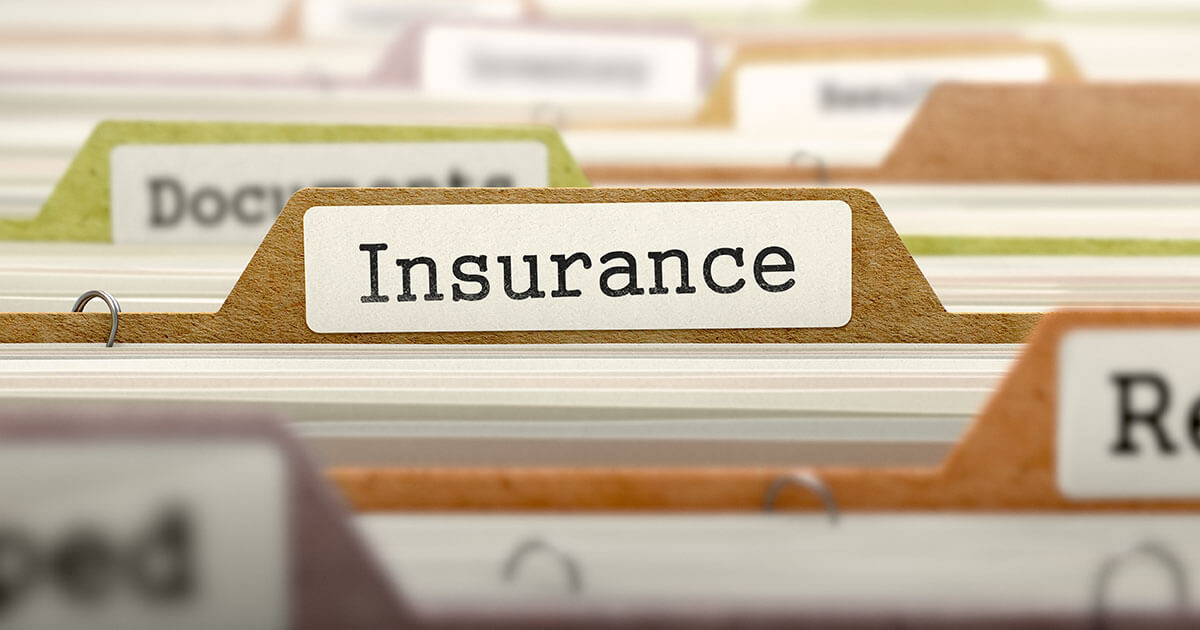Insurance for the self-employed
Anyone setting up a business usually has to sign up for, or at least consider several insurance policies for the self-employed. Which and how many insurances a business founder needs depends on their specific industry, as well as on their lifestyle at home.
In principle, it is advisable for company founders to first identify their operational risks before buying insurance policies. However, it is also important to consider what personal risk you may be taking as a self-employed individual. Listing potential risks can be very useful, and shows you where to focus your attention. It could be that your business will need different insurance policies depending on the stage of its development.
Personal insurance for the self-employed
When setting up a business, you should also consider your personal risks and analyse them carefully. There are certain risks against which you must be protected. For example, health and long-term care insurance are required by law. In addition, there are a number of personal insurance policies that can be taken out depending on the situation.
Health insurance
“God bless the NHS” (Roger Taylor) – unlike our friends across the Pond, Health Insurance is not an immediate concern for most self-employed people. However, it might be worth considering if you want to take out complimentary health insurance, as it is sometimes the case that this covers things that the NHS does not. Seeing as the amount you work will most likely correlate to the amount you earn, it is often a priority for self-employed people or freelancers to get back on their feet as quickly as possible – and unfortunately this can come at a price. Checking out private or complimentary insurance policies is perhaps a good option for those who want to cover themselves on this matter.
Generally speaking, however, health insurance is not an insurance which needs to be on the top of your list.
Income protection insurance
This insurance is a policy, which replaces your income in the short or long term if you are not able to work due to serious injury or illness. It also counts if you are unable to fulfil the major duties of your job. While it is unusual for a policy to pay you 100%, many will provide a monthly payment of 50-80% of your income, depending on which policy you take out.
Income protection insurance, sometimes also called disability insurance, will cover food, gas, education fees, credit card debt, mortgage payments, and everyday bills – in a nutshell, the essentials you have to pay, and standing payments you’ve committed to make.
You should take out an income protection plan if you’re self-employed because you cannot rely on employer sick pay. Furthermore, if you run a business that is dependent on your physical health (physiotherapist, builder), this kind of insurance is important because, in the case of injury, you won’t be able to get any income.
Accident insurance
Accident insurance covers you in the case of injury or disability caused by an accident. If you are physically active in your personal life, or simply want to be cautious, accident insurance policies are a good idea to give you peace of mind. Accident insurance acts as an additional insurance to health insurance, for example, so if you get injured skiing, and your health insurance doesn’t cover some costs to get you back on your feet as quickly as possible, an accident insurance policy may jump in. It depends on your health and accident insurance policy, so it is a good idea to get familiar with the small print!
The difference between income protection and accident insurance is that income protection insurance covers illness too, whereas accident insurance won’t cover this. The advantage of accident insurance is that it is usually cheaper – probably because it doesn’t cover illness.
Pension
Figuring out a pension plan is not the easiest task for the self-employed businessperson. In general, it is a good idea to make this something you consider a good habit. Build up a regular, sustainable healthy payment to your future self, and put your mind at ease. If you’re self-employed, you are entitled to a State Pension, just the same as everyone else. However, other options for insurance for the self-employed can supplement this with payments into ordinary personal pensions, stakeholder pensions, and self-invested personal pensions.
Unemployment insurance
If you should be unemployed due to forced redundancy, unemployment insurance policies pay a tax-free monthly benefit until you return to work – or until the policy benefit maximum has been reached, usually measured over a period of time. You must register as unemployed to make use of this, and it is important to note that most policies won’t cover voluntary redundancy, career breaks, unemployment due to professional misconduct or if you are a temporary worker. Furthermore, although it is great that the UK offer unemployment benefits, they most likely will need to be supplemented, especially if you are used to a higher wage. Unemployment insurance can help bridge the gap until you have a new job.
Company work insurance policies for the self employed
If you cause damage to a third person as part of your self-employed activity, you would be in trouble without a business liability insurance. A liability insurance is indispensable for enterprises, which have personal customer contact in their industry. However, companies that work with personal data, or pharmaceutical companies with consulting services, for example, should also take out business liability insurance. The various insurance companies offer very different services in some cases: Therefore, when choosing your business liability insurance, make sure that the service package matches the risks customary in your industry.
Business liability insurance
This insurance is essential to protect your business from liability claims. This insurance is sometimes shortened to GL for general liability insurance. It is really important that you know what is covered and what is not under a business liability insurance, so make sure you take the time to inform yourself, or consult an insurance expert to make sure you won’t be in for a nasty surprise should you need your insurance to jump in.
Most insurances will cover the basics, and depending on your budget, you can insure against most things. Basic protection should include protection from claims for bodily injury, property damage, and personal injury, among others. Generally speaking, employee injuries, professional liability, intentional acts, auto-related coverage, as well as punitive damage, are not covered.
Legal protection insurance
Legal help can be very expensive – there is a reason why lawyers are usually well off! Trying to face a legal case without a lawyer is daunting, and not advised, meaning that many people do not follow up on small cases. As a business you may not have a choice in the matter, meaning that insuring for legal counsel is a good idea.
Other business insurances for the self-employed…
This list of recommended insurances is by no means exhaustive. It is always a good idea to stay up to date with what types of insurances are out there, and also what legal changes are happening on a local, state, and federal level – this could affect your liability.
Taking out insurance for the self-employed
Self-employed persons should check at regular intervals whether all their insurance policies are really necessary, and if they are, whether they are up to date, and offer the best deal. On the other hand, after an expansion of business activities, it may also be necessary to take out new policies or increase the sums insured. If operational changes lead to a changed risk situation, you should also inform the insurance companies immediately.
You should always comply with the conditions for receiving benefits laid down in the insurance contract. Otherwise, the insurer may refuse to assume the costs in the event of a claim. It is also advisable to regularly compare the costs and benefits of existing insurance policies with offers of other policies. In this way, the costs can often be reduced while the insurance benefits remain the same.
Summary
Self-employed business people should decide which insurances are necessary for them and their company with particular regard to their industry. The premiums for these insurances are often underestimated, but should be included in your financial and business plans. Above all, it is important to avoid unnecessary costs immediately after the establishment, and not to take out too long-term insurances. However, certain personal and company insurance policies are indispensable in order to be protected in the event of a claim. You should also regularly carry out a cost-benefit comparison – depending on the size of the company and activity, this can save several hundred to over a thousand dollars annually.
Please note the legal disclaimer relating to this article




